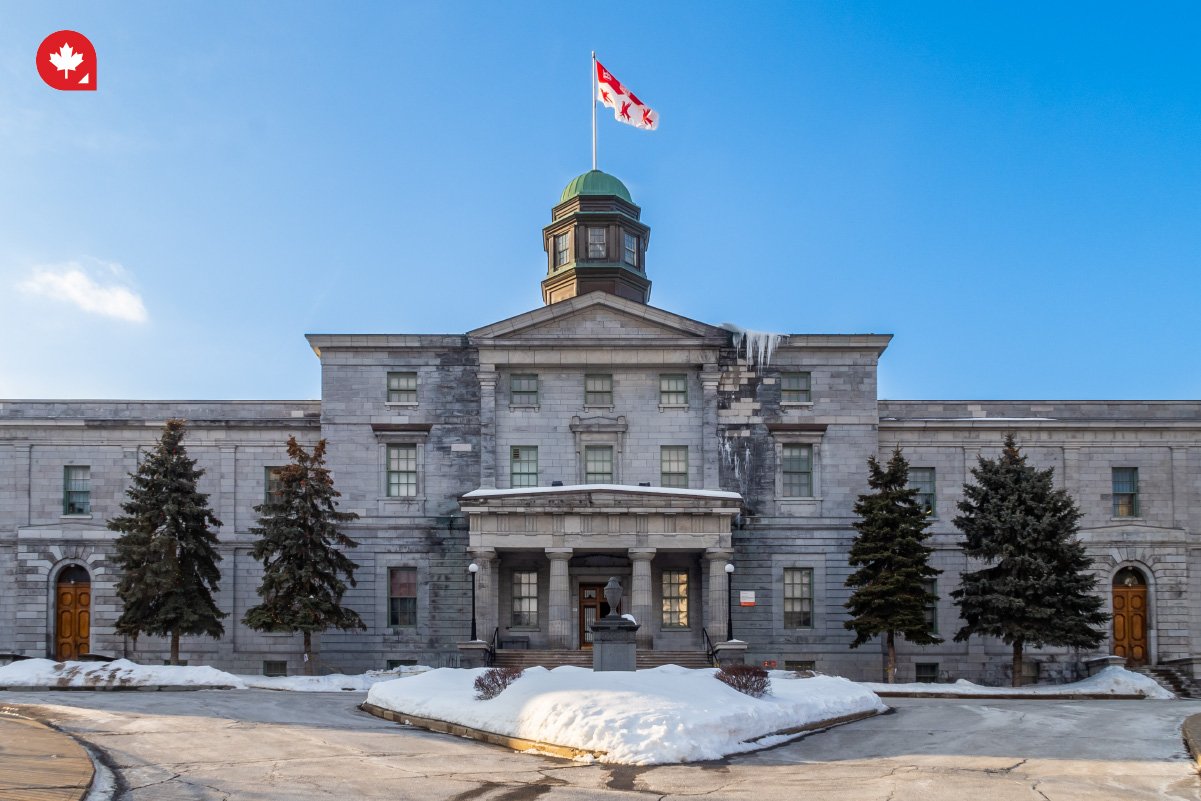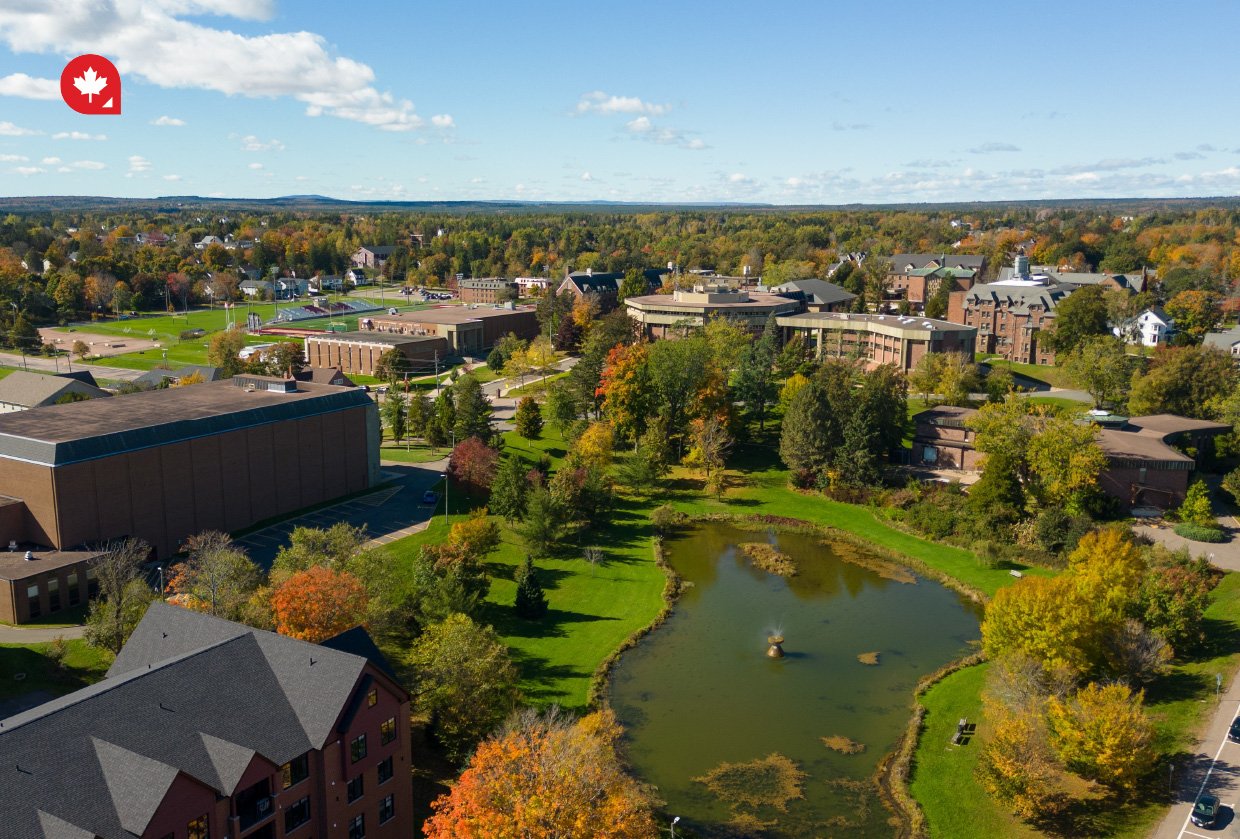Canada has some of the best universities in the world. Achieving a degree from one of these amazing universities will increase your chances of staying in Canada after graduation and landing an incredible job. In fact, there is a specific program designed to help Canadian graduates land their dream jobs in Canada. The Post-graduation Work Program (PGWP) allows you to work in Canada temporarily after your studies and possibly even permanently. Getting a job often depends not only on your qualifications but your work experience too. Getting work experience is not always easy, especially since most job listings are internships or ask for at least two years of work experience.
Ready to find out how to apply to study in Canada to optimize your chances of getting one of thousands of jobs in Canada? Below is everything you need to know about the PGWP and some top tips on how to apply to Canadian universities that will open the doors to a sterling professional future and a chance to get permanent residency in Canada.
Best Places to Study in Canada To Find a Job After Graduation

Knowing which universities to enrol in to study in Canada will not only ensure that you receive a world-class education but the best chances to get a job in Canada after your graduate.
Below are the top 10 Designated Learning Institutions (DLI’S) in Canada to apply to:
| Top Canadian Universities | ||
|---|---|---|
| University | Top-ranked Courses | City |
| 1. University of Toronto | Toronto (Ontario) | |
| 2. McGill University | Montreal (Quebec) | |
| 3. University of British Columbia | Vancouver (British Columbia) | |
| 4. University of Alberta | Edmonton (Alberta) | |
| 5. University of Montreal | Montreal (Quebec) | |
| 6. McMaster University | Hamilton (Ontario) | |
| 7. University of Waterloo | Waterloo (Ontario) | |
| 8. Ryerson University | Toronto (Ontario) | |
| 9. York University | Toronto (Ontario) | |
| 10. Trent University | Peterborough (Ontario) | |
What is the PGWP?

The Post-graduation Work Program is aimed at helping you temporarily live and work in Canada after you’ve acquired your Canadian qualification. To qualify, you must study at a Designated Learning Institution (DLI) or a school that the government has approved to host international students. Ten of Canada’s 11 territories and provinces have DLIs; however, most can be found in Ontario, Quebec and British Columbia. There are currently 1542 DLIs to choose from to study in Canada.
To qualify to apply through the PGWP, you will need the following:
- Completed your degree, diploma or certificate at a DLI in Canada;
- Your qualification/course must be longer than eight months;
- Your qualification/course must be full-time; and
- Your study permit must be valid when you apply.
You will have 180 days from when you receive your final results to apply through the PGWP. The visa process takes roughly three months after you’ve submitted your application. If you are successful, your PGWP will generally be valid for the same length as your course.
How Do I Apply to Study in Canada

Once you’ve chosen which place you would like to enrol in, the next step is ensuring you have everything you need to apply to study in Canada.
What are the Requirements to Study in Canada?
To study in Canada, you will need a study permit and either a Temporary Resident Visa (TRV) or an Electronic Travel Authorization (eTA). What’s the difference? Your study permit allows you to study in Canada, while your TRV or eTA allows you to enter Canada. Whether you need a TRV or eTA depends on where you are applying from.
Below is a list of requirements for your study permit:
- Meet the admission requirements of your DLI;
- Meet general requirements to enter Canada;
- Valid Passport;
- Updated CV/Resume;
- Letter of intent;
- Language results from approved test;
- Proof of funds to support yourself during your stay in Canada;
- Medical certificate;
- Police Clearance; and
- Proof that you intend to leave after your studies;
Masters and Ph.D. applicants will also need:
- 2 Letters of Academic reference;
- Employment references; and
- An Educational Credential Assessment (ECA) is studied outside of Canada.
Not sure if your language skills are up to scratch? Have a look at how we can help you prepare for success in your upcoming IELTS.
How We Can Help You With Your Application

When you choose to study in Canada, you choose to secure a bright new future in one of the most dynamic countries in the world. You will get a great education and the opportunity to apply to stay in Canada through the PGWP and land your dream job in Canada.
FAQs

What are Some of the Benefits of Studying in Canada?
Studying in Canada offers several benefits, including access to high-quality education, personal and professional growth opportunities, and a welcoming and diverse culture. Canadian universities are known for their academic excellence, with many ranking among the top universities in the world. Additionally, studying in Canada provides opportunities to gain Canadian work experience and can lead to permanent residency in Canada.
What is a PGWP, and How Does it Work?
A Post-Graduation Work Permit (PGWP) is a work permit that allows international students who have graduated from a designated Canadian learning institution to work in Canada. The length of the permit depends on the length of the student's program of study, with permits ranging from eight months to three years. The PGWP is a valuable opportunity for international students to gain Canadian work experience and potentially qualify for permanent residency in Canada.
How Do I Apply to Study at a Canadian University?
To apply to study at a Canadian university, you will need to research universities and programs that match your academic goals and interests. Once you have selected a program, you must meet the university's admission requirements, which may include submitting transcripts, language proficiency test scores, and letters of recommendation. You will also need to apply for a study permit from the Canadian government, which requires proof of acceptance from a designated learning institution, proof of financial support, and other supporting documents.




